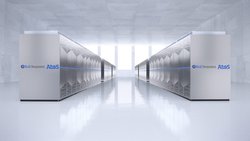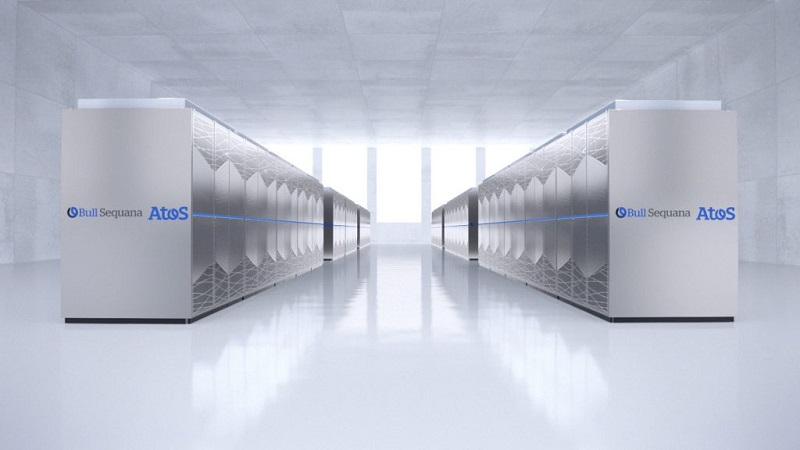
April 20, 2018
By: Michael Feldman
The Jülich Supercomputing Centre (JSC) has installed the first module of JUWELS, a supercomputer that will succeed JUQEEN as the center’s premier HPC system and pave the way for future exascale machines.
 JUWELS, which stands for Jülich Wizard for European Leadership Science, is the product of the EU-funded DEEP, DEEP-ER and DEEP-EST projects, whose driving theme was to develop next-generation supercomputers using a modular architecture. The idea, which was pioneered by JSC Director Thomas Lippert, is to design and construct systems made up of heterogeneous compute modules optimized for different types of workloads. Specifically, the effort defined three different modules: a cluster module for traditional simulation software, an "extreme scale" booster module for highly vectorizable codes that can take advantage of manycore processors, and a data analytics module for the most demanding types of analytics work.
JUWELS, which stands for Jülich Wizard for European Leadership Science, is the product of the EU-funded DEEP, DEEP-ER and DEEP-EST projects, whose driving theme was to develop next-generation supercomputers using a modular architecture. The idea, which was pioneered by JSC Director Thomas Lippert, is to design and construct systems made up of heterogeneous compute modules optimized for different types of workloads. Specifically, the effort defined three different modules: a cluster module for traditional simulation software, an "extreme scale" booster module for highly vectorizable codes that can take advantage of manycore processors, and a data analytics module for the most demanding types of analytics work.
The modules are connected to one another using a "network federation" solution, which glues together the disparate interconnect fabrics across the different architectures. There are also network attached memory and global collective engine nodes to support fast access to global memory and provide acceleration of MPI collectives, respectively. Special system software is included to make all the different piece appear as a monolithic whole to the applications.
For now, all the heterogenous issues can be ignored. The only JUWELS module that is currently installed is of the cluster one, which was supplied by Atos in the form of a Sequana supercomputer. It’s comprised of 2,550 nodes, each powered by two 24-core Xeon “Skylake” processors and outfitted with at least 96 GB of memory. Peak system performance is estimated to be 12 petaflops, or more than twice the peak capacity of its predecessor, JUQUEEN.
The next JUWELS module, which JSC says will deliver “significantly higher performance,” will be installed in 2019. This will be some form of the aforementioned booster module, which in the prototype JURECA system, was powered by “Knights Landing” Xeon Phi processors. It’s likely that JSC had been counting on the “Knights Hill” Xeon Phi processors for this part of the system, but since Intel pulled the plug on Knights Hill and left the Xeon Phi roadmap in limbo, it’s not clear what JSC has in mind for this second module. JSC may be able to use the same processor Intel is developing for the DoD’s Aurora exascale supercomputer, although that system is not expected to be installed until 2021.
The final JUWELS module will be the data analytics one. JSC did not specify a date for its deployment.
